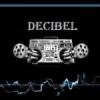Best way to learn music production
-
Similar Content
-
- 3 replies
- 181 views
-
- 4 replies
- 209 views
-
- 4 replies
- 268 views
-
- 0 replies
- 403 views
-
- 0 replies
- 235 views
-
-
Recently Browsing 0 members
- No registered users viewing this page.





.thumb.png.6c71be719dfe49e56452731b456fc53f.png)
Recommended Posts
Create an account or sign in to comment
You need to be a member in order to leave a comment
Create an account
Sign up for a new account in our community. It's easy!
Join the herd!Sign in
Already have an account? Sign in here.
Sign In Now